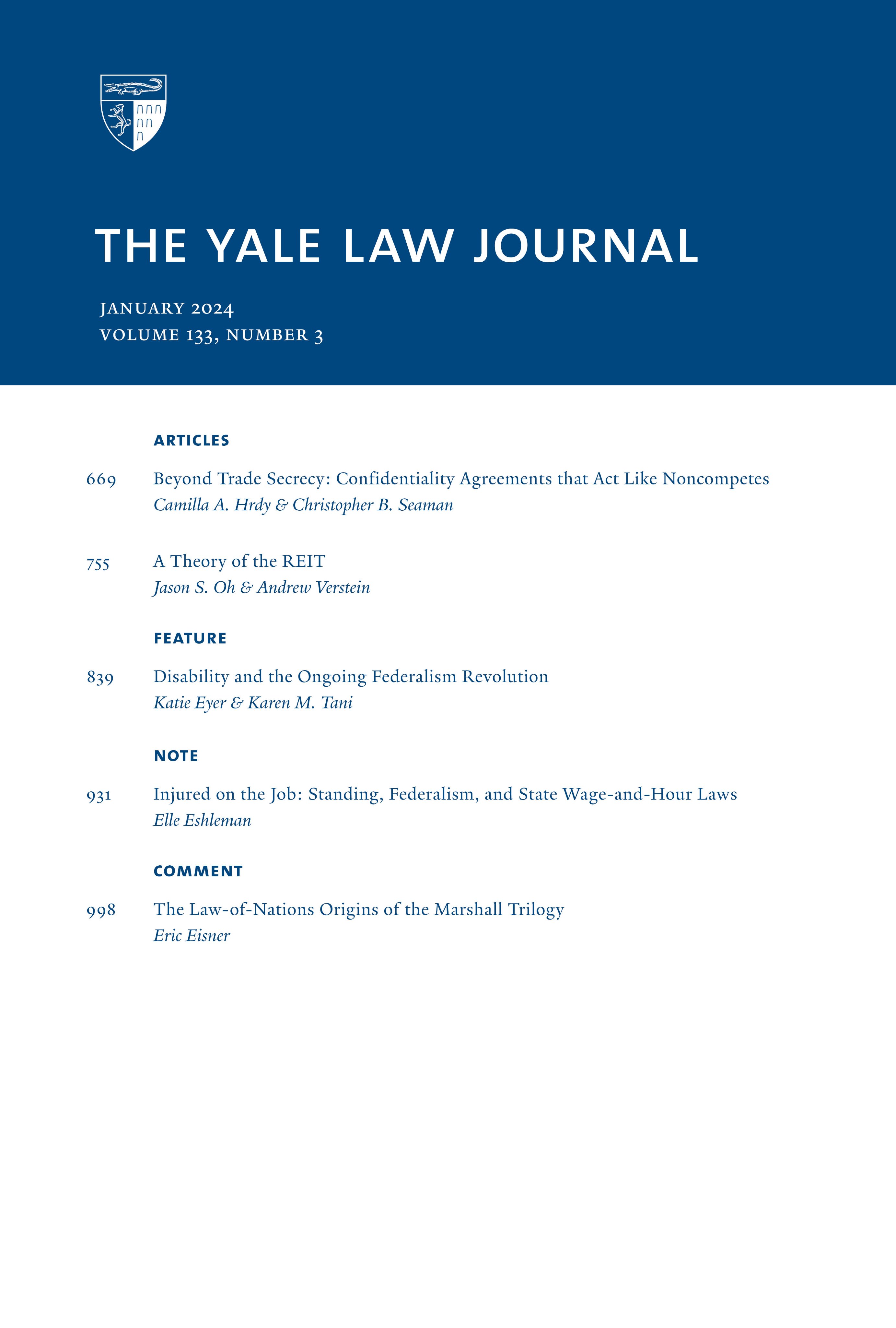无视外交关系法
IF 5.2
1区 社会学
Q1 LAW
引用次数: 4
摘要
在外交关系中,行政长官应该尊重什么?鉴于行政部门在这一领域具有相当大的宪法权威和制度美德,在司法上给予一些尊重几乎肯定是适当的。事实上,法院目前在许多案件中都服从行政当局。然而,埃里克·波斯纳(Eric Posner)教授和卡斯·桑斯坦(Cass Sunstein)教授呼吁在外交事务背景下,大幅扩大法院对法律行政解释的尊重。他们坚持认为,法院应该假定地对外交关系法的行政解释给予雪佛龙式的尊重——即使行政解释只是作为一种诉讼立场加以阐明,即使它违反了国际法。在我们看来,在雪佛龙公司有资格服从其提议的大量案件中,对行政人员的大量服从是非常不合适的——也就是说,在我们所谓的行政约束区内运作的外交关系法。法院审查并应继续审查具有最高联邦法地位的国际法的行政解释,这些解释至少部分是在行政部门之外制定的,并为行政权力的行使提供条件。如果不这样做,就会破坏外交关系中的法治。它还会以以下方式大幅增加总统的权力:破坏国家利益,阻碍行政部门对总统权力进行重要的内部检查,并导致国会对行政部门的监管减少。简而言之,我们认为在某种程度上,顺从会招致漠视;在某种程度上,解释法律的权威实际上构成了违反法律的权威。本文章由计算机程序翻译,如有差异,请以英文原文为准。
Disregarding Foreign Relations Law
What deference is due the executive in foreign relations? Given the considerable constitutional authority and institutional virtues of the executive in this realm, some judicial deference is almost certainly appropriate. Indeed, courts currently defer to the executive in a large number of cases. Professors Eric Posner and Cass Sunstein nevertheless call for a dramatic expansion in the deference courts accord executive interpretations of law in the foreign-affairs context. They maintain that courts should presumptively give Chevron-syle deference to executive interpretations of foreign relations law - even if the executive interpretation is articulated only as a litigation position and even if it violates international law. In our view, substantial deference to the executive is singularly inappropriate in a large swath of cases eligible for Chevron deference in their proposal - namely, foreign relations law that operates in what we call the executive constraining zone. Courts have scrutinized, and should continue to scrutinize, executive interpretation of international law that has the status of supreme federal law, is made at least in part outside the executive, and conditions the exercise of executive power. Failure to do so would undermine the rule of law in the foreign relations context. It would also dramatically increase the power of the president in ways that would: subvert the nation's interests, discourage the executive from developing important internal checks on presidential power, and lead to less congressional regulation of the executive. In short, we maintain that deference at some point invites disregard; and law-interpreting authority at some point effectively constitutes law-breaking authority.
求助全文
通过发布文献求助,成功后即可免费获取论文全文。
去求助
来源期刊

Yale Law Journal
LAW-
CiteScore
4.50
自引率
6.20%
发文量
0
期刊介绍:
The Yale Law Journal Online is the online companion to The Yale Law Journal. It replaces The Pocket Part, which was the first such companion to be published by a leading law review. YLJ Online will continue The Pocket Part"s mission of augmenting the scholarship printed in The Yale Law Journal by providing original Essays, legal commentaries, responses to articles printed in the Journal, podcast and iTunes University recordings of various pieces, and other works by both established and emerging academics and practitioners.
 求助内容:
求助内容: 应助结果提醒方式:
应助结果提醒方式:


